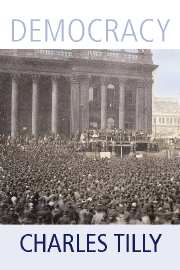6 - Power and Public Politics
Published online by Cambridge University Press: 05 June 2012
Summary
Russia once lived in a vital, vigorous moment of democratic hope. Aspirations rose impressively in 1988. At that point, to be sure, the Russian Republic still dominated the Soviet Union rather than existing as an independent state. Russian Mikhail Gorbachev, general secretary of the USSR's Communist Party and (since that year) chairman of the Supreme Soviet's presidium, was then leading the drive toward glasnost' (political openness) and perestroika (economic and political rebuilding). During the historic 19th party conference that opened at the end of June 1988, Gorbachev delivered an intensely hopeful three-and-one-half-hour address.
The sober Annual Register summarized Gorbachev's speech as rejecting Stalinism and calling for a new society that would preserve the benefits of socialism:
Although it was impossible to describe such a society in a detailed way, a socialism of this kind would be a system of ‘true things.’ The purpose of all social development, from the economy to spiritual life, would be the satisfaction of popular needs. There would be a dynamic and advanced economy based upon a variety of forms of property and worker participation, combining a broad measure of central planning with a great degree of autonomy for individual enterprises. The basic needs of all would be provided, including health, education and housing, but individual talent would also be rewarded, where appropriate, in both moral and material terms. A society of this kind would have a high degree of culture and morality, and would be managed by a system of ‘profound and consistent democracy.’
(AR USSR 1988: 106)- Type
- Chapter
- Information
- Democracy , pp. 133 - 160Publisher: Cambridge University PressPrint publication year: 2007



